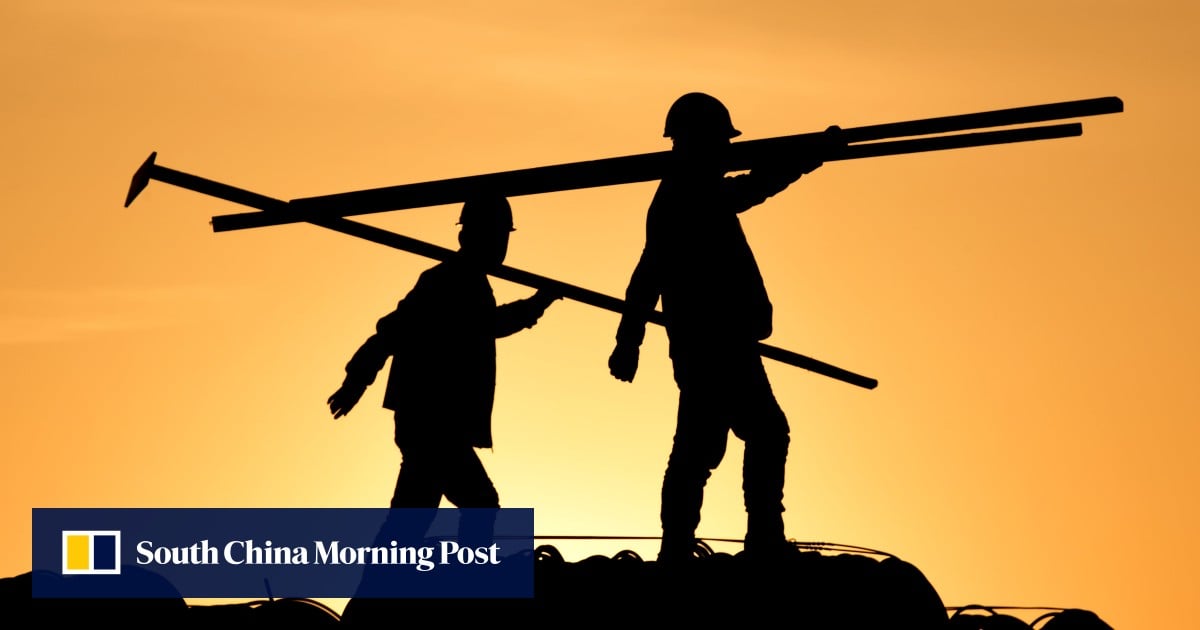
His situation appears to have become more of the norm than an outlier when conducting business in China, according to the 2024 China Corporate Payment Survey recently conducted by Coface, which specialises in credit insurance and risk management.
Is China’s industrial policy on best path? Some Beijing advisers offer hot takes
Is China’s industrial policy on best path? Some Beijing advisers offer hot takes
“Before the pandemic, overdue payments were not so common, usually lasting no more than six months,” Jin said, emphasising that there has been a surge in payment arrears since the pandemic, with some even persisting for more than two years.
Jin recently said his state-owned enterprise client still owed him 120,000 yuan (US$16,700) for a project completed three years ago. Despite his efforts to reach out to the company for payment, he had received no response and was also not allowed to access their office premises.
“The cash flow hit is huge. For small and micro-sized enterprises like us, our projects simply can’t proceed without sufficient funding,” he said. “I’ll insist on full payment upfront in the future. I know I’ll inevitably have to take on fewer projects, but it’s better to turn down those that are only going to lead to more losses.”
But Coface said that, among 1,020 respondents, 62 per cent had reported overdue payments, up from 40 per cent a year prior. And increased competition was deemed the biggest cause of financial difficulties among customers, due in part to excessive capacity in some industries.
“Slowing demand ranked as the second-biggest risk to business operations, and our respondents believed it would become more severe compared with 2023,” Coface said in its survey analysis.
Scientists warn restrictions risk battering Beijing’s ‘productive forces’ plan
Scientists warn restrictions risk battering Beijing’s ‘productive forces’ plan
Having first troubled China more than three decades ago, triangular debt has made its unwelcome return to the country amid an economic slowdown and an extended property market downturn.
Although the average payment delay fell from 83 days in 2022 to 64 days in 2023, which Coface said might be a sign of improved cash-flow conditions, growing caution was seen among Chinese enterprises.
Its findings said this was “evidenced by greater use of risk-management tools and more restrictive payment terms”, as well as a shrinking percentage of companies expressing more confidence in their customers in 2023, dropping from 33 to 16 per cent.
For some private businesses like Jin’s, the payment arrears’ impact on cash flow has dampened their willingness to expand, stalling an important engine for a post-pandemic rebound in the world’s second-largest economy.
I won’t be taking on those big real estate projects
China’s leadership has set an ambitious goal of growing the economy by 5 per cent this year, but doing so will require a big boost in momentum, considering the relatively high base of comparison from 2023 and a spattering of economic headwinds. These include persistent deflationary risks, an ongoing real estate crisis, and escalating pressure from the West.
“[Overdue payments] are too common in the construction industry,” said Bruce Lu, a private subcontractor for a major state-owned construction company in central China. “I won’t be taking on those big real estate projects. I’ll probably shift my focus to the smaller ones supported by the government and with solid financial backing.”
According to the Coface survey, the construction sector continued to be most affected by arrears in 2023, with payment delays averaging 84 days, as property developers still remained under financial pressure.
Lu said his state-owned enterprise client owed him 11 million yuan for three projects completed in 2019, and this has left him unable to pay downstream suppliers while putting his company “on the brink of collapse”.
“At first, we made some progress in chasing payments, but now it’s at a standstill. They keep stalling with red-tape excuses,” said Lu, who has turned to the courts to collect money from his state-owned debtor, but still laments how difficult it’s been.
Taiwan firms in mainland China turn ‘more cautious’ as moves intensify: survey
Taiwan firms in mainland China turn ‘more cautious’ as moves intensify: survey
Wang Qichang, a committee member with the Private Economy Research Centre in Zhejiang province, pointed out that solving China’s debt problem largely revolves around the need to “create a better business environment”.
“The government’s money to repay debts comes mainly from tax revenue,” Wang said. “Only when enterprises dare to invest and innovate – providing goods that consumers willingly pay for – will the government be able to generate more value-added tax, income tax and sales tax.”
The authorities need to take concrete actions to revive the confidence of businesses rather than “just chant slogans and issue documents”, he stressed.
He proposed implementing property-right protections in the judicial system to bolster enterprise confidence in safeguarding private property.

